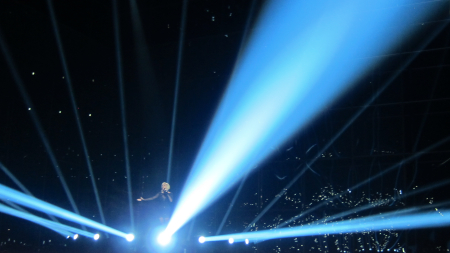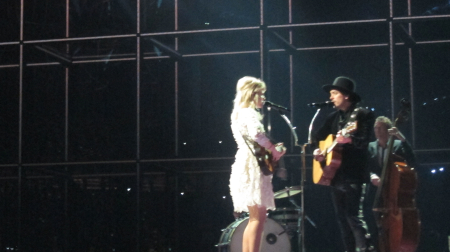With the release of the full televote rankings and the individual rankings for each jury member, we can look at the differences between the two camps. John Egan compares the results of a 100% jury vote to a 100% televote in the first of a series of articles on ESC Insight looking at the voting issues and trends of Eurovision 2014.
Kudos to the EBU and the Eurovision Song Contest team for embracing transparency for the 2014 Song Contest. For the first time ever, we officially have the a complete split between jury and televote rankings, and the detailed ranking of all jurors. Which means we can, thanks to the magic of Excel, coffee, and a bit of time, look at the songs the jury voted for versus the televoting scores across the watching countries.
…And Now, Some Caveats
There are a few things to bear in mind. First, not every country had both a televote and a jury vote in the Grand Final. San Marino never has a televote, since it uses Italy’s phone system, and the small number of televoters would struggle to meet the minimum voting threshold; Albania’s televote didn’t meet the minimum threshold (again); and Georgia’s jury vote was disqualified… the rankings across all five jurors were viewed as too similar (ie beyond the realm of statistical likelihood).
We took the final jury rankings per country and assigned 12, 10, 8, 7, (etc.) points to the top 10 ranked entries. We did the same thing with the televote rankings per country. Then we added up each of these into two scores to get a jury total and a televote total.
What we have not done (in this article) is combine these into an overall score: that’s not how the system works, so there’s little point in doing so. What we are looking at here are the ten songs that the jury and the public liked and voted for, by stripping away the ‘negative impact’ that ranking all twenty-six songs implies. How close in tastes are the juries and the public?
The Jury Picks
Austria’s Conchita Wurst would have comfortably won this year’s Contest were it up to the juries alone: ‘Rise Like a Phoenix‘ remains our winner. However, Swede Sanna Nielsen’s ‘Undo” moves ahead of the Dutch Common Linnets, whose ‘Calm After the Storm‘ moves back to third place.

Sanna Nielsen is busy doing something (picture; Ewan Spence).
The main beneficiaries under this system would have been Malta, Finland and Azerbaijan. Malta roars up from 23rd to 5th place. Finland pops into the Top Ten at 7th (up from 11th) and Azerbaijan improves from 22nd to 8th.
Not many songs move down as dramatically, though Russia’s Tolmachevy Sisters slide from 7th to 14th. Here’s the Jury ranking:
| Country | Jury votes |
| Austria |
209 |
| Sweden |
176 |
| The Netherlands |
167 |
| Hungary |
123 |
| Malta |
112 |
| Armenia |
105 |
| Finland |
104 |
| Azerbaijan |
101 |
| Norway |
96 |
| Denmark |
85 |
| Ukraine |
69 |
| Spain |
68 |
| United Kingdom |
64 |
| Russia |
62 |
| Iceland |
59 |
| Germany |
52 |
| Belarus |
50 |
| Romania |
50 |
| Montenegro |
48 |
| Greece |
43 |
| Switzerland |
34 |
| Italy |
27 |
| Poland |
24 |
| Slovenia |
15 |
| San Marino |
13 |
| France |
4 |
The Public Picks
And the winner is… still Austria but by an even larger margin, over 100 points ahead of The Netherlands, who retain second place. Armenia would take the bronze and Sweden would drop into fourth place.

The Common Linnets, SF1 (picture: Ewan Spence)
There are some striking differences to note, and questions will be asked about the difference between jury and public votes (and we’re delighted to see many mainstream publications picking up on some of these issues). Poland rockets up from the combined 14th place to 5th in the public vote – the jury vote dragged ‘My Slowanie (We Are Slavic)‘ down and out of the Top Ten.
Switzerland leaps up from 13th to 8th place, while Romania’s Paula Selling & Ovi squeak into the Top Ten with ‘Miracle‘, a modest two place improvement on the combined placing (note that the juries had them down as 18th).
Who was carried a bit by the juries? Hungary and Norway. ‘Running‘ tumbles from 5th down to 11th. Out of the Top Ten if the vote was based on the public alone. Carl Espen’s ‘Silent Storm‘ ended up 8th overall, but was ranked 15th by the public.
Here’s the televote ranking:
| Televotes | Country |
|
306 |
Austria |
|
196 |
The Netherlands |
|
177 |
Armenia |
|
168 |
Sweden |
|
145 |
Poland |
|
132 |
Russia |
|
107 |
Ukraine |
|
105 |
Switzerland |
|
93 |
Romania |
|
79 |
Hungary |
|
56 |
Belarus |
|
42 |
Denmark |
|
41 |
Greece |
|
39 |
United Kingdom |
|
37 |
Norway |
|
36 |
Finland |
|
35 |
Iceland |
|
29 |
Spain |
|
27 |
Montenegro |
|
22 |
Italy |
|
22 |
San Marino |
|
21 |
Germany |
|
20 |
Slovenia |
|
14 |
Azerbaijan |
|
12 |
Malta |
|
1 |
France |
To Mix Or Not To Mix
Thankfully there was agreement over the winner of the Eurovision Song Contest 2014: the current 50/50 combination, the 100% jury score, and the 100% televote aggregate scores, all put Conchita Wurst in first place. But some participants’ results were much more variable – to an extent that impacts the final rankings in a number of significant ways.
If we look at patterns in these votes, we see some changes worth noting. The Juries would have put four Nordics and two ex-Soviet entries in the Top Ten. The televote shifts that balance to three ex-Soviets and only one Nordic (Sweden). The lone Big 5 Top Ten, Spain’s Ruth Lorenzo, dances down to 18th in the televote.
Choose Your Poison
Returning to the first point, it is important that the Eurovision Song Contest is not only fair to everyone involved, but seen to be fair. Publishing the full voting breakdown is a wonderful step in that regard, even though it has raised many questions that in previous years would simply be hidden away out of sight of everyone but the organisers.
There’s no right answer that will satisfy everyone when judging the Eurovision Song Contest. It’s very easy to say 50/50 jury/televote, but the devil is in the detail. Although the winner of this year’s Contest is clearly not in doubt, there have been years when the data available suggests that the jury and televote were not in agreement (according to the figures released by Eurovision.tv, the 2011 jury placed Italy first, while the eventual winners Azerbaijan topped the televote).
The wildly different opinions of Malta and Poland in 2014 are far more out of sync than any split result in previous years. There’s a general feeling that something is ‘not quite right’ with the voting system this year, and we here at ESC Insight would be interested to know if the issue is going to be addressed by the Reference Group at their next meeting.









I’m glad to see the juries are giving credit to songs with some musical merit such as those from Malta, Hungary, Norway and Azerbaijan as opposed to the rather shallow entries of say Romania, Russia and Poland. In recent years ESC seems to have moved away from the ‘Bing a Bong’ type effort that we in the UK tend to associate with Eurovision. That may in part be down to the 50-50 voting system. So by all means reform it but don’t chuck it out altogether.
A further point – the juries vote on the Friday night performance. If one country’s combined jury vote ranks a song – say 25th, could this effectively preclude that song from being awarded any votes in the Grand Final, thereby making that country’s Saturday night televotes for the song worthless? I seem to remember something similar happened in BBC’s Strictly Come Dancing and caused a lot of controversy. If the EBU are asking the public to part with their money to vote, if in some cases these votes can’t make any difference to the outcome, (and given that this is known or could be none in advance of the televote) might this be of dubious legality?
I still prefer the present voting 50/50 compared to televoting.
Because televoting is all bout block voting…. All polish people living elsewhere other than Poland voted for Poland as it showed in past when ireland always gave lituantia 12 points as all lituantians living in ireland voted for their own country. Keep the present voting system it us the only one that works at present
Thankfully this year we had a decent song that won
Just wondering… even if we only look at the top 10, doesn’t the way the individual juror rankings are combined change? I’m no good at maths but I thought that under the 2009-2012 system, each jurors individual “Eurovision points” were added together, and the total sum converted into a final 1-12 points.
Eurovision.tv lists the overall jury ranking as an average. Is that the same thing?
Ben, we’ll get to the ‘what if it was the 90-12’ system shortly. This is an exercise in looking at the differences using the 2014 rankings of favourites (and ignoring the negative low rankings), i.e. what do people ‘like’ as opposed to ‘not like’
I agree with Rob, if this was Strictly or X Factor voting there’d be a scandal.
The UK viewers, the paying public, parted with their cash and placed Poland in the top spot, but because a vocal coach and 4 people no ones ever heard of didn’t like the song themselves, it got 0 despite the BBC/EBU still raking in all that money from the UK phone vote which gave 12 to Poland.
Was wondering why your numbers don’t match mine, even though I think we did the same thing.
I see that your total points
for jury = 1960 (of 2088)
for tele = 1962 (of 2030)
After checking my numbers I tried looking for missing voters in yours, but its complicated by not differing by a whole multiple of 58 and some of your scores being greater than mine.
Here are my numbers to help diagnose who’s done what wrong. https://dpaste.com/0PKZYJB/ (expires 20th May)
“that’s not how the system works, so there’s little point in doing so.” And this is? ;P
I’m ok with the jury vote giving support to a song that would otherwise have been less supported by the public vote (and vice verse). It seems that the jury and the public vote are there to balance each other out and that’s largely what happens. And since 2009, both the jury and the televote have agreed on the same winner (except in 2011, but that was a weird year).
But I don’t like what happened in UK and Ireland, with the jury vote negating the televote winner. That seems like an abuse of power, and indeed being able to rank in last place gives the jury the power to punish a song for fickle reasons. I’d much rather see a return to the jury only picking a top 10.
My impression is that this sort of voting issue is a pretty big deal as far as OFCOM is concerned, so it will be interesting to see what comes of this, especially as the UK is one of the Big 5.
BTW, I’m in New Zealand – a country that normally doesn’t bother at all with Eurovision coverage – and the press here are reporting on the UK/Ireland/Poland voting situation. Though I suspect this is mainly due to being able to illustrate the article with photos of the busty Slavic girls!
Greetings from Auckland Robyn! Did you watch it on UKTV? We did this year and while we missed Graham Norton’s commentary the quality was much higher than a webstream.
Since the rules allow for combining the jury and televotes, so long as the televote was conducted fairly OFCOM won’t have an issue. They followed the rules, in other words.
Well, that’s us in geographical order then 🙂
The worst thing about the juries’ negative voting power in my view is that it is probably overweighted, if not entirely specious in terms how differently the jurors really feel about them. They might not even mean it, it’s purely an artifact of the rules.
No, wait. That was just me being temporarily confused 😐
… confused *about geography*.
(*sigh* How I love to compound confusion)
I did the same exercise but came up with different numbers. I think that you may have missed some data. For example, there were 36 juries who would each have awarded 58 points under the 12-10-8 system so the total points across all countries should add to 36 * 58 = 2088. However, your numbers add to only 1960. Similarly, televote numbers should add to 2030 but yours add to 1962. Or have I misunderstood what you are doing?
I’ve just noticed that Zolan posted a similar comment to mine but that Zolan also posted a link to his/her numbers. I have compared the numbers Zolan posted to mine and they are the same.